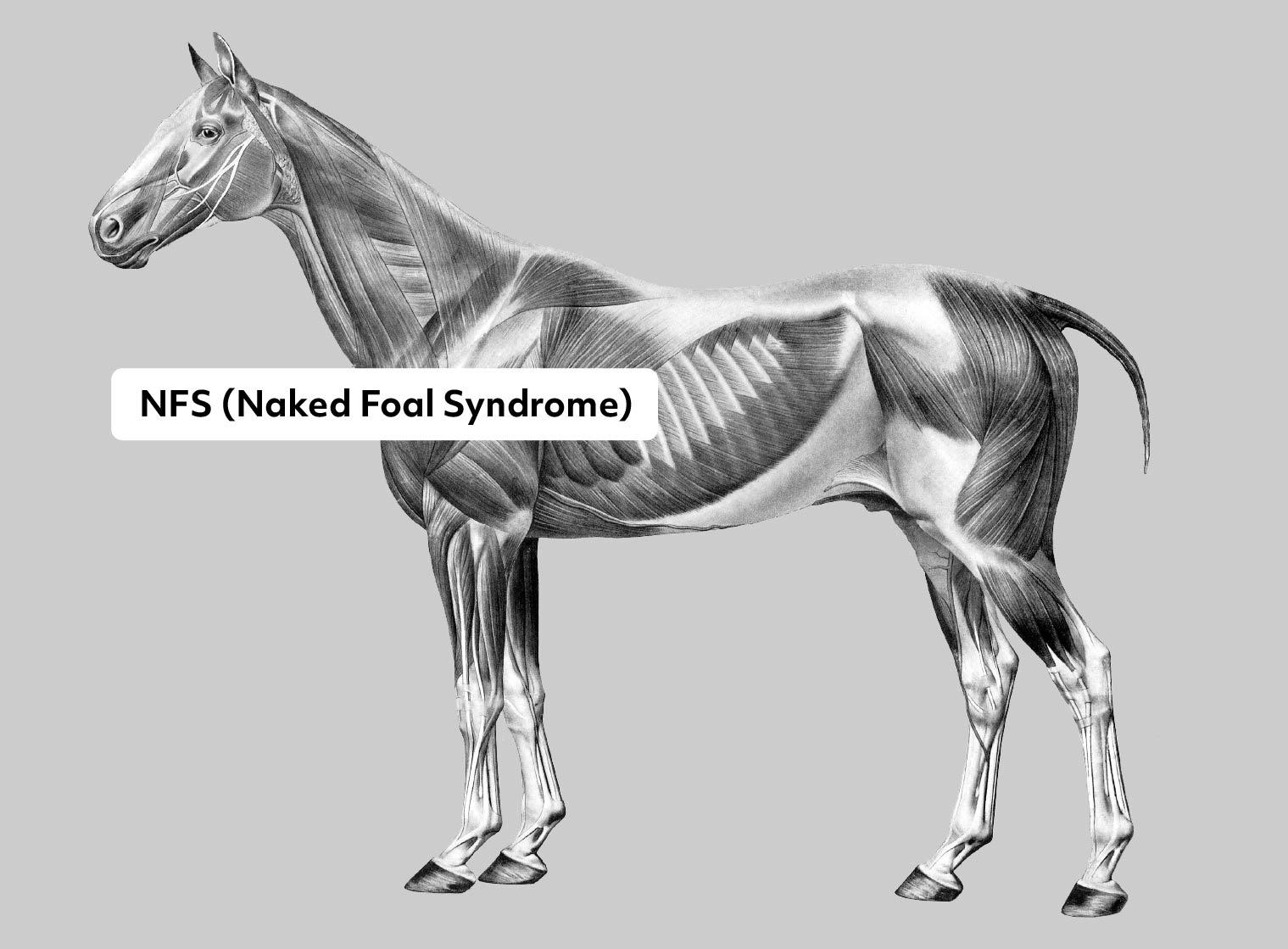Naked Foal Syndrome (NFS)
Gene or Region: ST14
Reference Variant: G
Mutant Variant: T
Affected Breeds: Akhal Teke
Research Confidence: Moderate confidence, strong correlation in larger studies
Explanation of Results: nfs/nfs = homozygous for Naked Foal Syndrome, trait likely expressed/likely lethal nfs/n = heterozygous for Naked Foal Syndrome, carrier n/n = no variant detected
General Description for Naked Foal Syndrome
Naked Foal Syndrome (NFS) is a recessive genetic disorder resulting in the birth of foals with little to no hair and a general weakness with death occurring early in life (weeks to months).
References
Bauer, A., Hiemesch, T., Jagannathan, V., Neuditschko, M., Bachmann, I., Rieder, S., Mikko, S., Penedo, M. C., Tarasova, N., Vitková, M., Sirtori, N., Roccabianca, P., Leeb, T., & Welle, M. M. (2017). A Nonsense Variant in the ST14 Gene in Akhal-Teke Horses with Naked Foal Syndrome. G3 (Bethesda), 7(4), 1315-1321. doi: 10.1534/g3.117.039511
More Horse Health
Impaired Acrosomal Reaction
Impaired Acrosomal Reaction Subfertility (IAR) causes sub- or infertility in males. In normal fertilization, the the head of a sperm binds to the egg and releases the contents of a structure known as the acrosome. However, some males with IAR are unable to properly carry out this process.
Junctional Epidermolysis Bullosa 1
Junctional Epidermolysis Bullosa (JEB), also known as red foot disease or hairless foal syndrome, results in the inability to produce the proteins needed to keep the skin on the body. Affected foals exhibit symptoms within days of birth, including blisters at the pressure points, detatchment of the hooves, and oral ulcers. As there is no treatment, affected foals are humanely euthanized.
Kissing Spines Susceptibility Risk
Kissing Spines Susceptibility (KSS) evaluates a horses genetic risk for developing Kissing Spines. Horses diagnosed with Kissing Spines will have two or more dorsal spinous processes that are too close together, touch, or even overlap. This bone-on-bone grinding causes varying degrees of pain, and thus decreased mobility.
